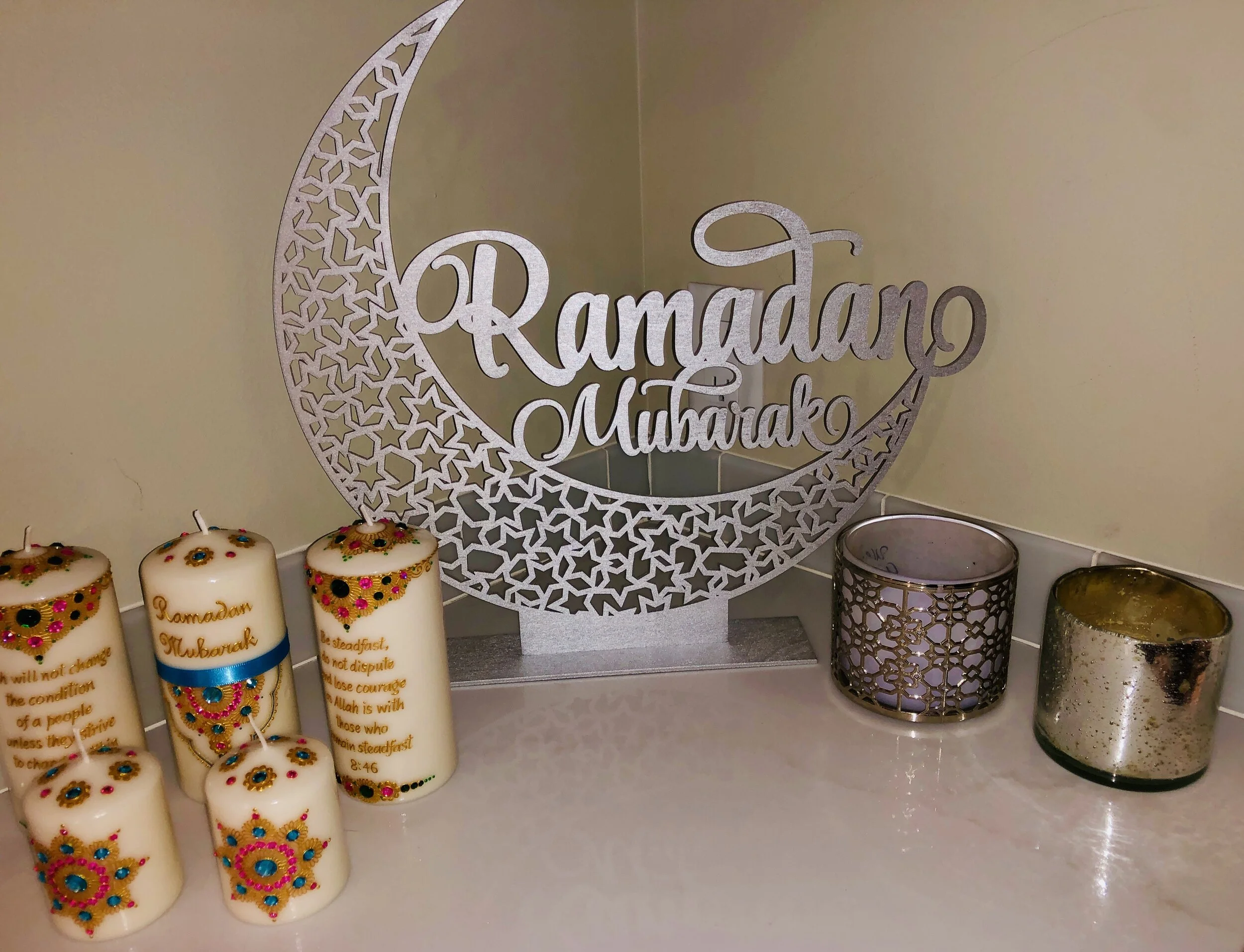Ramadan in Quarantine: An Insight Into the Identity of Muslim American Youth
Last spring, one thing I looked forward to amidst a loaded schedule of classes, exams, and high school golf was Ramadan: growing up, Ramadan meant hearty meals, wholesome family gatherings, and much-need time for introspection.
The unrelenting slew of AP exams and high school golf tournaments, however, made fasting impossible and minimized the spirituality effects of Ramadan. Unlike the elaborate Iftars and dinners I associated with Ramadan, most nights during last year’s Ramadan felt like any other night.
I reluctantly expected the same this year: golf season and AP exams once again coincided with Ramadan. The deep loss that I felt when my final semester of high school and my final varsity golf season were canceled due to the coronavirus pandemic were mitigated, therefore, when I realized that I would be able to commit fully to Ramadan.
Religious clarity has never come easy to me. Islam and American culture have always seemed to contradict. While at Sunday school, I was taught about the frightening punishments I’d face for not following religious practices, following those customs at school or at sports felt abnormal and challenging.
Those internal conflicts have only expanded as I’ve grown older. As my high school peers regularly party, drink, date, and hookup, I face the uncomfortable decision of conforming to the coveted, glorified high school version of American culture — leaving behind the customs of my religion — or feeling ostracized. And as I’ve been further exposed to societal issues, my evergrowing commitments to feminism and equality have come at odds with the Quran’s conservative views towards homosexuality and women’s rights.
This puzzling duality is the case for many Muslim American youth. Many are driven away from Islam by the don’t-do-this mentality that is preached by Desi “aunties” and “uncles” across the country. And many find themselves at odds when they reach the critical juncture where American culture and Islam no longer feel compatible.
That incongruity has been tough to accept. Following the 2016 election and the xenophobia that accompanied President Trump’s campaign, I felt compelled to connect with my Islamic heritage and affirm my identity as a Muslim American. I read about Islamic history and relished cultural staples. My connection expanded last summer during a trip to Istanbul, where I relished seeing the roots of my culture.
Personally, Islam in recent years has become more about culture than practice. It has become less about the nitty-gritty details that the aunties and uncles say will define your afterlife. Rather, it has become more about the rich history and traditions and the refined Muslim American perspective. Finally, it has become a source of pride.
While that internal cultural renaissance has made for a powerful self-discovery, a subconscious guilt still lingers when I devour a cheeseburger or flirt with a girl in class. I hoped that a Ramadan spent in quarantine would allow me to establish some semblance of the devotion that many of my elders possess, but in a way that would comfortably correspond with my lifestyle as an American teenager.
That moment — a revealing epiphany that undid my religious ambiguity — never came during my thirty days of fasting, even as I anticipated its arrival while toiling through the waning hours of each day on an empty stomach. If anything, my religious confusion grew as the pandemic claimed more lives: as one friend begrudgingly put it, “What kind of god would let this happen?”
What I did feel, however, was a profound appreciation each night as I finally sunk my teeth into the sweet skin of a date and the crunchy outsides of a pakora. Normally, I sit down for dinner each night with my family and absentmindedly inhale the intricate, flavorful dishes before me. But during this month, I ate each meal mindfully.
Fasting during Ramadan is supposed to foster gratitude, compassion, and unity. Never in my lifetime have those feelings been more necessary: the coronavirus pandemic has tested our societal connections during quarantine, and it has forced tens of millions to lose their jobs while creating an economic recession that will surely bring unprecedented challenges for many.
Having an appreciation for my good fortune, as well as the ability to empathize with the struggles that many are feeling and will feel, will be necessary to help others and to reshape our society to benefit those in need. Empathy and appreciation are necessary virtues to being a good person; this year’s unique Ramadan has taught me that’s what being a Muslim is all about.


